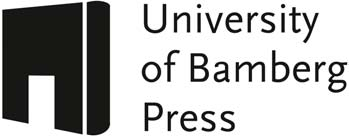Publication policies and Open Access/Copyright
Open access
The Religionspädagogische Beiträge. Journal for Religion in Education is published open access, free of charge for authors, readers and libraries. Articles finally approved by the editors and the corresponding author of the article will be published online first and summarized in up to three issues per year. We do not offer printed copies of our journal.
Religious Education Contributions. Journal for Religion in Education does not charge authors for publication (so-called Article Processing Charges, APCs) or submission (so-called Submission Charges).
ISSN
The Religionspädagogische Beiträge. Journal for Religion in Education holds an ISSN for its electronic edition: 2750-3941. The previous ISSN up to 2020 for the printed version was 0173-0339.
Digital Object Identifiers
Each article published in the Religionspädagogische Beiträge. Journal for Religion in Education is identified by a persistent Digital Object Identifier (DOI).
License
The Religionspädagogische Beiträge. Journal for Religion in Education is published under a Creative Commons BY license ( https://creativecommons.org/licenses/by/4.0/). Authors of those articles are granted permission to re-publish or re-print the article or parts of it, provided that the initial publication in the RpB is properly acknowledged.
Archive
Thanks to the DigiTheo 5 project and the retrospective digitization by the University Library of Tübingen, the archive of the Religionspädagogische Beiträge. Journal for Religion in Education has been made available in its entirety up to and including volume 83 (2020). The journal is indexed in IxTheo and can be searched here: https://ixtheo.de/Record/1749367076
Long term archiving
All articles published by Religionspädagogische Beiträge. Journal for Religion in Education are deposited on the archive server of the German National Library (DNB) and referenced in the DNB catalog. University of Bamberg Press, the publishing house of the Otto-Friedrich-Universität Bamberg, holds all published volumes and articles in a sustainable manner. Additionally, this journal participates in the PKP Preservation Network. This means that all content of the journal is archived within a private LOCKSS network. New content from the journal is automatically harvested. After a "trigger event" - either a clear message from the journal manager or the cessation of deliveries - the content is made available through the OJS instances of one or more LOCKSS partners. INFO: LOCKSS is an acronym for "Lots of Copies Keep Stuff Save." The LOCKSS initiative is based on the premise that no single institution can provide long-term preservation. Therefore, this project consists of a cooperation of several libraries. The project was initiated and continued by the Stanford University Libraries. The LOCKSS software is open source.


